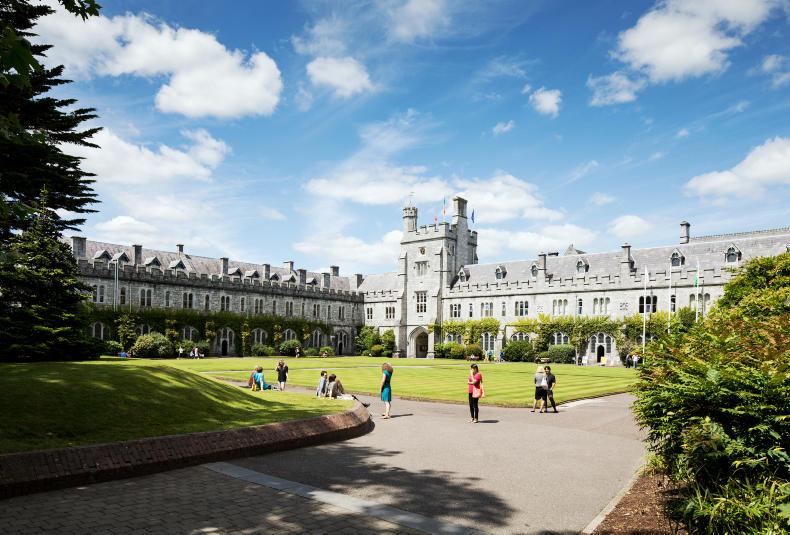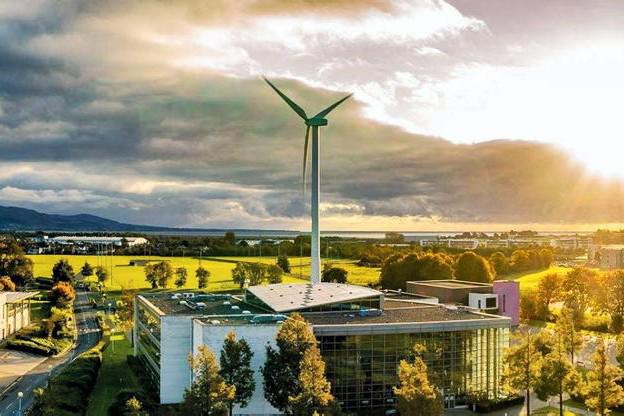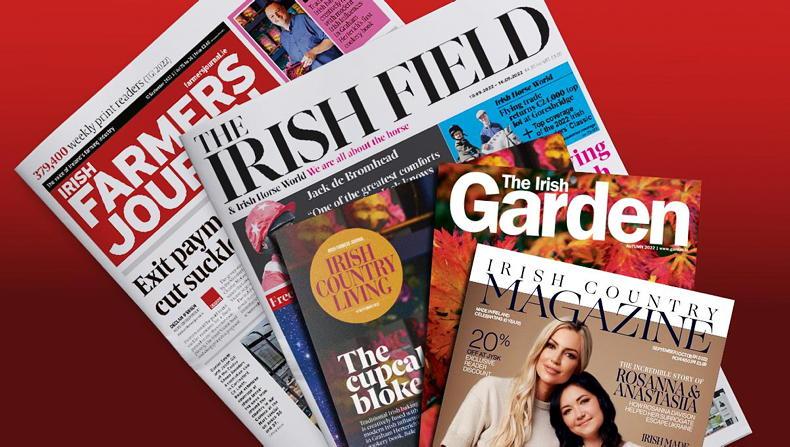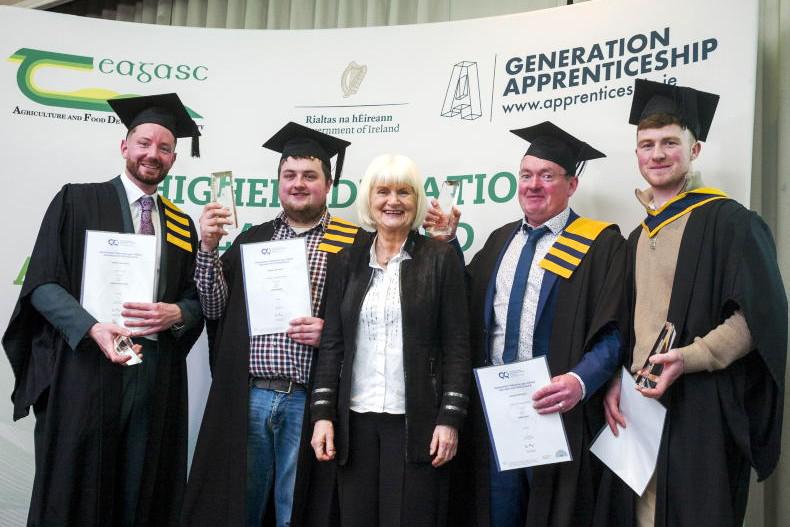The MSc in co-operatives, agri-food and sustainable development is a one-year, full-time programme taught by academic staff from the departments of food business and development and management and marketing at University College Cork (UCC). There are also guest lecturers throughout the programme.
The students can hope to develop careers in sustainability within the food industry or wider bioeconomy
There are 18 students currently on the course, which is now in its second year. The students come from a range of backgrounds, with undergraduate degrees in geography, sociology, economics, law, marketing, communications, science and agricultural science. One-third of the class this year are from an active farming background.
“The students can hope to develop careers in sustainability within the food industry or wider bioeconomy, farm advisory with a focus on sustainability, consultancy careers in sustainability, collaborative practices, marketing and communications, rural development specialists, food and sustainability policy advisors, co-operative development specialists and so on,” said programme co-director Dr Noreen Byrne.
Modules covered during the sections taught include:
Contemporary socioeconomic and environmental issues. Co-operative and collaborative responses.Sustainable rural development.Economics of agri-food markets.Global food policy issues.Marketing for sustainable food production and consumption. Food branding and digital media.Project management. Sustainable food systems.Food supply chain and value analysis. Research methods. Professional development.As a group, the students go on field trips to places like the Clondarrig Community Farm, Danu Farming Group, dairy farms and Carbery.
A large part of the overall credits for the course involves a research project that the students carry out while on work placement.
This year’s students are on work placement (some remotely now with COVID-19) at Cork Chamber of Commerce, MagGrow, FDC, Nutribio (CAHL), Teagasc, Tipperary Co-operative, Macroom Buffalo Cheese, Cloughjordan Eco Village and the Environmental Research Institute.
They are doing their research projects in things like farm advisory, farm partnerships and farm debt.
The students are also looking at a co-operative bio-gas project, sustainability regulation for the poultry industry, agricultural co-operatives, Agricultural Sustainability Support and Advisory Programme (ASSAP) water quality, analysis of CAP and development of sustainability cultures within organisations.
The research is an important element of the masters programme and some of last year’s students are now on funded PhD programmes in areas such as dairy efficiency and sustainable consumption.
UCC Co-operative centre
The UCC co-operative centre was founded in 1980 and has a number of undergraduate and postgraduate courses available.
They are run in conjunction with the Cork University Business School (CUBS).
Post-graduate programmes:
MSc Co-operatives, Agri-Food and Sustainable Development.MSc in Co-operative and Social Enterprise (by Online Learning). In short:
One-year master’s (12 months).September-March: coursework.April-August: practice-based research project (placement).Academic modules combined with practical, skills-based modules and industry/practice exposure.Fee: €10,500 – some might be recouped through placement (FDC provide a full scholarship – there are currently five students on this year’s programme with this Jack Murphy FDC Scholarship).Entry requirements: 2H or equivalent in a level 8 degree.Shane Walsh, Buttevant

Shane Patrick Walsh.
Shane Walsh is graduate of the BSc in agriculture from UCD and is currently carrying out research on farm partnerships in association with FDC.
“I come from a beef farm in Buttevant. I did my undergrad in food and agribusiness management in University College Dublin (UCD) and then took two years out of the agri-industry. I went travelling to Australia and Canada, where your food comes from and sustainable supply chains are really topical there. So I wanted to do a masters to improve my knowledge.
“In Australia, they are all about short supply chains and farmer’s markets, where the producers are getting the best value for their products. ‘The open food network’ is an online platform for farmer’s markets in Sydney.
“If you look at Irish beef, there are a lot more people in the chain. The UCC course had modules that appealed to me. They are interesting and topical, like how to market sustainability to consumers.
“FDC group sponsored my masters with the Jack Murphy Scholarship. As part of that, my research project is to help their company. I’m doing it on farm partnerships; are they sustainable for Irish family farms?
“I’d have a very positive opinion of the course, the lecturers were very approachable. There were a lot of field trips, looking at regenerative farms, environmental low-cost farming systems. It was a bottom-up rather than top-down approach to how we manage our farms, reducing synthetic fertiliser use and our carbon footprint. We also looked at using different grass species. I think it might be the way forward if the right prices and supports were there, if we could educate consumers on the benefits of that farming type. I think if it’s marketed correctly, consumers will be willing to pay more for sustainability.”
Daniel O’Leary, Mallow

Daniel O'Leary.
Daniel O’Leary is doing his research on farm technologies in terms of usage and impact on efficiencies and sustainability.
“I am a milk recording technician in the Dungarvan and south Waterford area with Munster Bovine. I did my undergrad in geographical and archaeological sciences in UCC. We’ve a dairy farm at home near Mallow as well. The whole concept of agriculture and sustainability was touched on in social geography.
“During my summers in college, I did work experience on an organic vegetable farm in Innishannon and did milk recording. Munster were introducing a handheld milk recording system, so I was training milk recorders how to use that. This summer and last summer, I’ve been doing the DIY milk recording.
“I was thinking of doing a master’s anyway, if one suited me. This one lined up with my interests. There is a business, marketing and economics side of it which I hadn’t done academically before.
“What I’m working on at the moment is a research project to demonstrate the current use of research technologies to improve the efficiency of dairy farms in such a way that is quantifiable for farmers. We’ve been milk recording for years at home. Just because a farm might have implemented a technology does not mean it is using it to its full advantage.
“The course is a nice size. People come from all backgrounds in it, which made for good discussion. My placement is with Tipperary co-op and they are giving me a hand with my research project, however the placement is on hold with the coronavirus.
“The data that I am collating, with the help of Tipperary Co-op, relates to the correlation between herd EBI and milk solids produced. I also want to review the use of AI and participation in discussion groups across the Tipperary Co-op supplier base.”
Martina Ryan Doyle, Newcastlewest

Martina Ryan Doyle.
Martina Ryan-Doyle is a BSc business information systems graduate and is a qualified accountant who has many years of experience in the multinational sector.
“My background is in accounting, working in multi-national companies. My interest in the course comes from a redirection in my career. I spent eight years with GSK in various supply chain roles. We were offered a redundancy package and things that you put off when you’re in a job suddenly become possible.
“After I got the redundancy package, I spent a year in Zambia with the volunteer service overseas, supporting the roll out of a decentralisation policy in the country. There were four of us on the team. When I came back, I thought I would do what I did before, but it just felt like a new chapter was opening for me. I did a few contract roles in the multinational sector again, as well as consulting roles with the Irish NGO sector, namely Self-Help Africa. Their primary focus is on implementing long-term sustainable rural development programmes in countries across Africa. So, they facilitate access to markets for surplus production and things like that.
“I came across the MSc programme and it ticked a number of boxes for me – the scope of topics is quite broad and I am interested in how we approach rural development in a European context. It’s progressive and future orientated, because it’s only two years old. My placement is with the FDC group, as I was awarded the Jack Murphy Scholarship, but that’s on hold due to COVID-19. My research project is agricultural advisory services and its role in the future policy landscape of CAP.
“The course work is very demanding. Personally, I couldn’t have worked full-time while doing this. It is full-time and differentiates you a bit in the job market.”
Read more
Reader writes: Teaching in Vietnam during lockdown
'Every teacher in the country would love to be back at school' - Mary Magner
The MSc in co-operatives, agri-food and sustainable development is a one-year, full-time programme taught by academic staff from the departments of food business and development and management and marketing at University College Cork (UCC). There are also guest lecturers throughout the programme.
The students can hope to develop careers in sustainability within the food industry or wider bioeconomy
There are 18 students currently on the course, which is now in its second year. The students come from a range of backgrounds, with undergraduate degrees in geography, sociology, economics, law, marketing, communications, science and agricultural science. One-third of the class this year are from an active farming background.
“The students can hope to develop careers in sustainability within the food industry or wider bioeconomy, farm advisory with a focus on sustainability, consultancy careers in sustainability, collaborative practices, marketing and communications, rural development specialists, food and sustainability policy advisors, co-operative development specialists and so on,” said programme co-director Dr Noreen Byrne.
Modules covered during the sections taught include:
Contemporary socioeconomic and environmental issues. Co-operative and collaborative responses.Sustainable rural development.Economics of agri-food markets.Global food policy issues.Marketing for sustainable food production and consumption. Food branding and digital media.Project management. Sustainable food systems.Food supply chain and value analysis. Research methods. Professional development.As a group, the students go on field trips to places like the Clondarrig Community Farm, Danu Farming Group, dairy farms and Carbery.
A large part of the overall credits for the course involves a research project that the students carry out while on work placement.
This year’s students are on work placement (some remotely now with COVID-19) at Cork Chamber of Commerce, MagGrow, FDC, Nutribio (CAHL), Teagasc, Tipperary Co-operative, Macroom Buffalo Cheese, Cloughjordan Eco Village and the Environmental Research Institute.
They are doing their research projects in things like farm advisory, farm partnerships and farm debt.
The students are also looking at a co-operative bio-gas project, sustainability regulation for the poultry industry, agricultural co-operatives, Agricultural Sustainability Support and Advisory Programme (ASSAP) water quality, analysis of CAP and development of sustainability cultures within organisations.
The research is an important element of the masters programme and some of last year’s students are now on funded PhD programmes in areas such as dairy efficiency and sustainable consumption.
UCC Co-operative centre
The UCC co-operative centre was founded in 1980 and has a number of undergraduate and postgraduate courses available.
They are run in conjunction with the Cork University Business School (CUBS).
Post-graduate programmes:
MSc Co-operatives, Agri-Food and Sustainable Development.MSc in Co-operative and Social Enterprise (by Online Learning). In short:
One-year master’s (12 months).September-March: coursework.April-August: practice-based research project (placement).Academic modules combined with practical, skills-based modules and industry/practice exposure.Fee: €10,500 – some might be recouped through placement (FDC provide a full scholarship – there are currently five students on this year’s programme with this Jack Murphy FDC Scholarship).Entry requirements: 2H or equivalent in a level 8 degree.Shane Walsh, Buttevant

Shane Patrick Walsh.
Shane Walsh is graduate of the BSc in agriculture from UCD and is currently carrying out research on farm partnerships in association with FDC.
“I come from a beef farm in Buttevant. I did my undergrad in food and agribusiness management in University College Dublin (UCD) and then took two years out of the agri-industry. I went travelling to Australia and Canada, where your food comes from and sustainable supply chains are really topical there. So I wanted to do a masters to improve my knowledge.
“In Australia, they are all about short supply chains and farmer’s markets, where the producers are getting the best value for their products. ‘The open food network’ is an online platform for farmer’s markets in Sydney.
“If you look at Irish beef, there are a lot more people in the chain. The UCC course had modules that appealed to me. They are interesting and topical, like how to market sustainability to consumers.
“FDC group sponsored my masters with the Jack Murphy Scholarship. As part of that, my research project is to help their company. I’m doing it on farm partnerships; are they sustainable for Irish family farms?
“I’d have a very positive opinion of the course, the lecturers were very approachable. There were a lot of field trips, looking at regenerative farms, environmental low-cost farming systems. It was a bottom-up rather than top-down approach to how we manage our farms, reducing synthetic fertiliser use and our carbon footprint. We also looked at using different grass species. I think it might be the way forward if the right prices and supports were there, if we could educate consumers on the benefits of that farming type. I think if it’s marketed correctly, consumers will be willing to pay more for sustainability.”
Daniel O’Leary, Mallow

Daniel O'Leary.
Daniel O’Leary is doing his research on farm technologies in terms of usage and impact on efficiencies and sustainability.
“I am a milk recording technician in the Dungarvan and south Waterford area with Munster Bovine. I did my undergrad in geographical and archaeological sciences in UCC. We’ve a dairy farm at home near Mallow as well. The whole concept of agriculture and sustainability was touched on in social geography.
“During my summers in college, I did work experience on an organic vegetable farm in Innishannon and did milk recording. Munster were introducing a handheld milk recording system, so I was training milk recorders how to use that. This summer and last summer, I’ve been doing the DIY milk recording.
“I was thinking of doing a master’s anyway, if one suited me. This one lined up with my interests. There is a business, marketing and economics side of it which I hadn’t done academically before.
“What I’m working on at the moment is a research project to demonstrate the current use of research technologies to improve the efficiency of dairy farms in such a way that is quantifiable for farmers. We’ve been milk recording for years at home. Just because a farm might have implemented a technology does not mean it is using it to its full advantage.
“The course is a nice size. People come from all backgrounds in it, which made for good discussion. My placement is with Tipperary co-op and they are giving me a hand with my research project, however the placement is on hold with the coronavirus.
“The data that I am collating, with the help of Tipperary Co-op, relates to the correlation between herd EBI and milk solids produced. I also want to review the use of AI and participation in discussion groups across the Tipperary Co-op supplier base.”
Martina Ryan Doyle, Newcastlewest

Martina Ryan Doyle.
Martina Ryan-Doyle is a BSc business information systems graduate and is a qualified accountant who has many years of experience in the multinational sector.
“My background is in accounting, working in multi-national companies. My interest in the course comes from a redirection in my career. I spent eight years with GSK in various supply chain roles. We were offered a redundancy package and things that you put off when you’re in a job suddenly become possible.
“After I got the redundancy package, I spent a year in Zambia with the volunteer service overseas, supporting the roll out of a decentralisation policy in the country. There were four of us on the team. When I came back, I thought I would do what I did before, but it just felt like a new chapter was opening for me. I did a few contract roles in the multinational sector again, as well as consulting roles with the Irish NGO sector, namely Self-Help Africa. Their primary focus is on implementing long-term sustainable rural development programmes in countries across Africa. So, they facilitate access to markets for surplus production and things like that.
“I came across the MSc programme and it ticked a number of boxes for me – the scope of topics is quite broad and I am interested in how we approach rural development in a European context. It’s progressive and future orientated, because it’s only two years old. My placement is with the FDC group, as I was awarded the Jack Murphy Scholarship, but that’s on hold due to COVID-19. My research project is agricultural advisory services and its role in the future policy landscape of CAP.
“The course work is very demanding. Personally, I couldn’t have worked full-time while doing this. It is full-time and differentiates you a bit in the job market.”
Read more
Reader writes: Teaching in Vietnam during lockdown
'Every teacher in the country would love to be back at school' - Mary Magner












SHARING OPTIONS